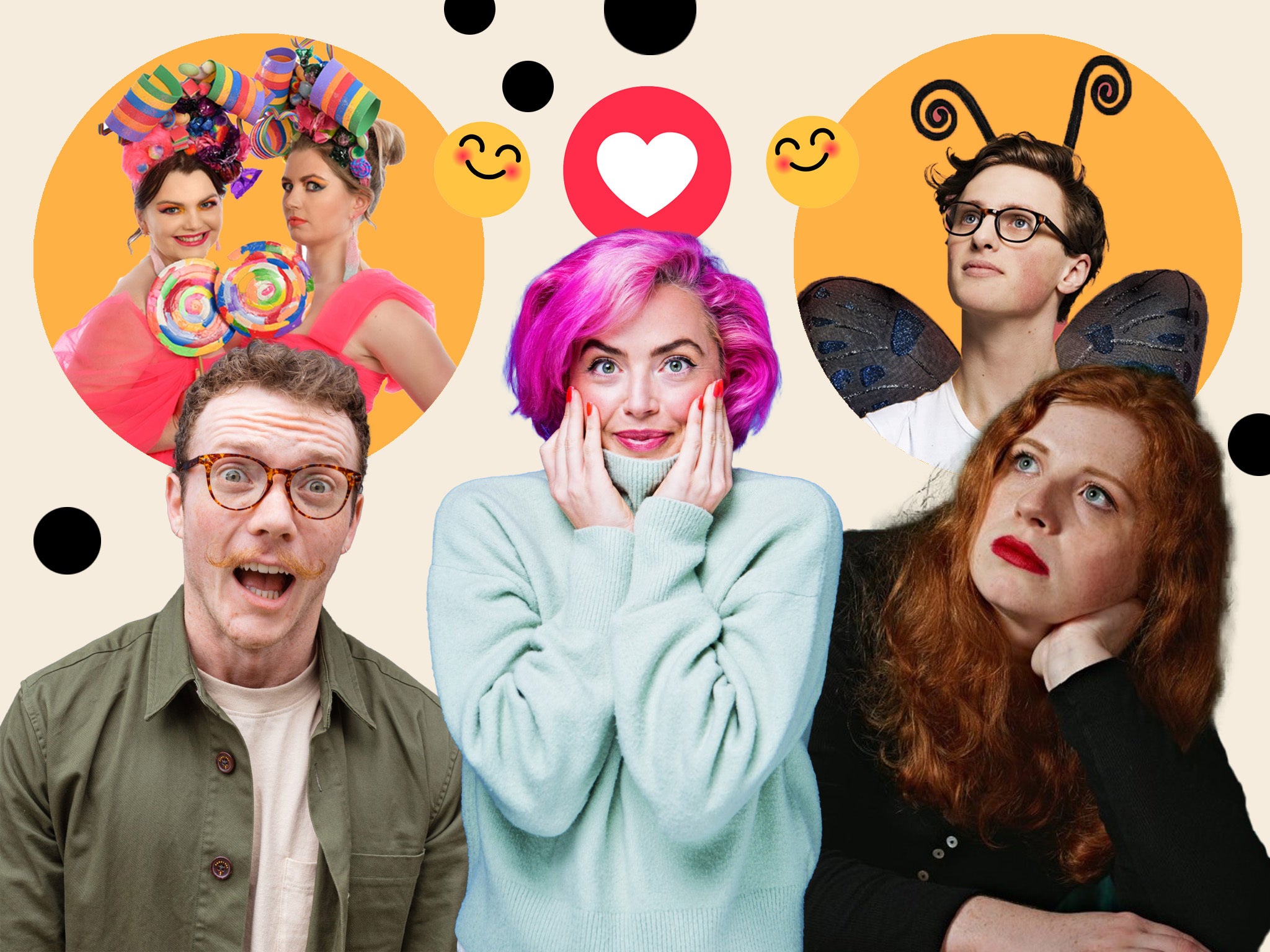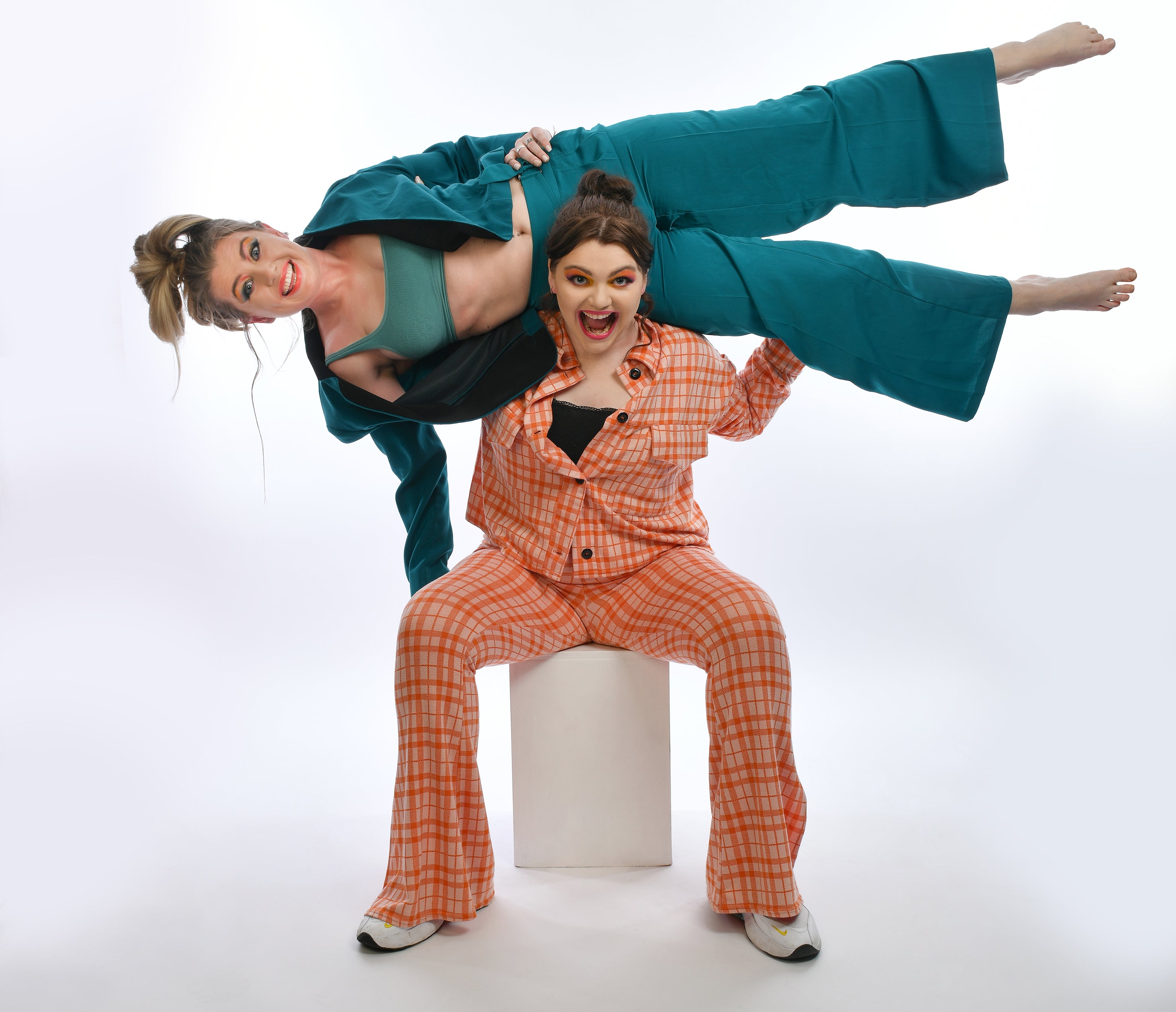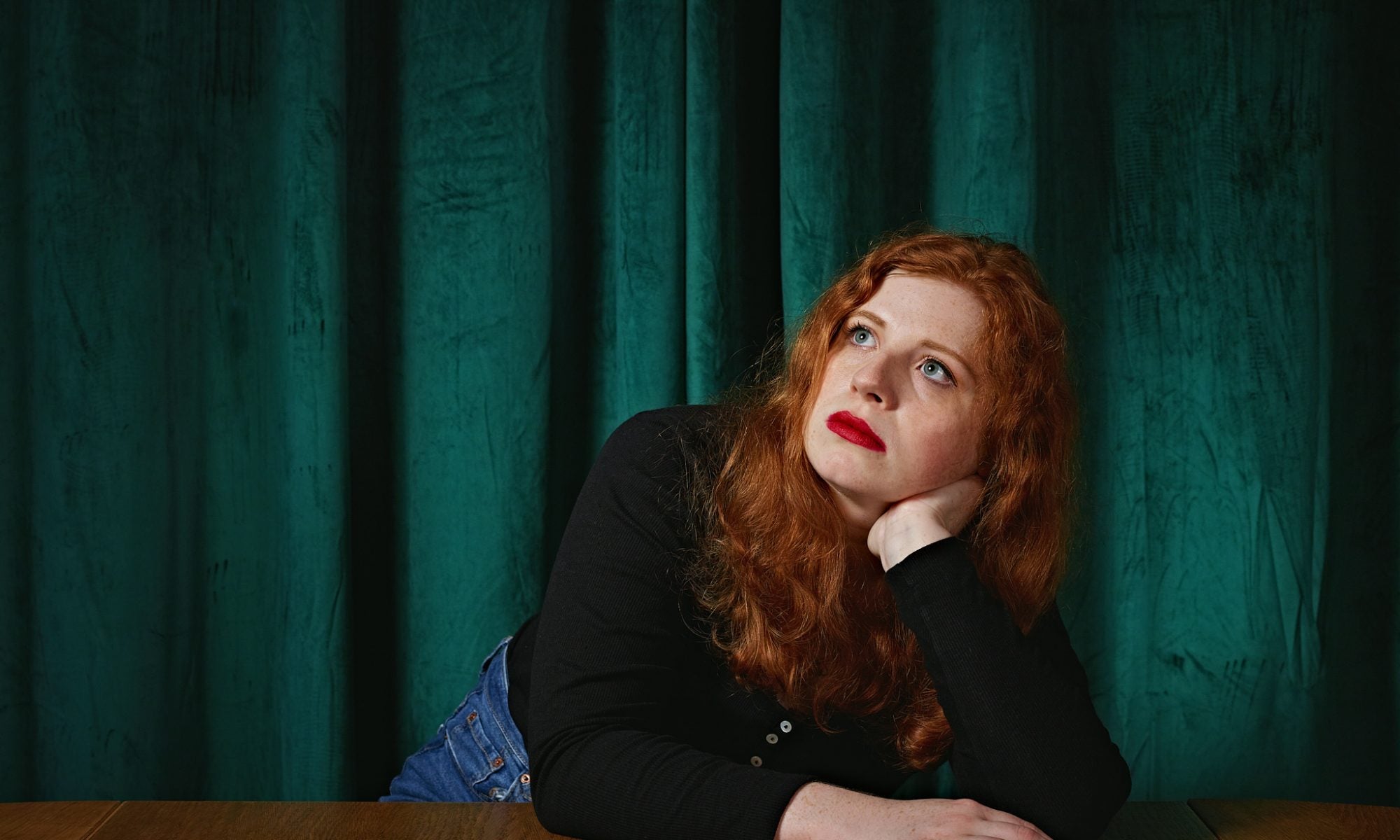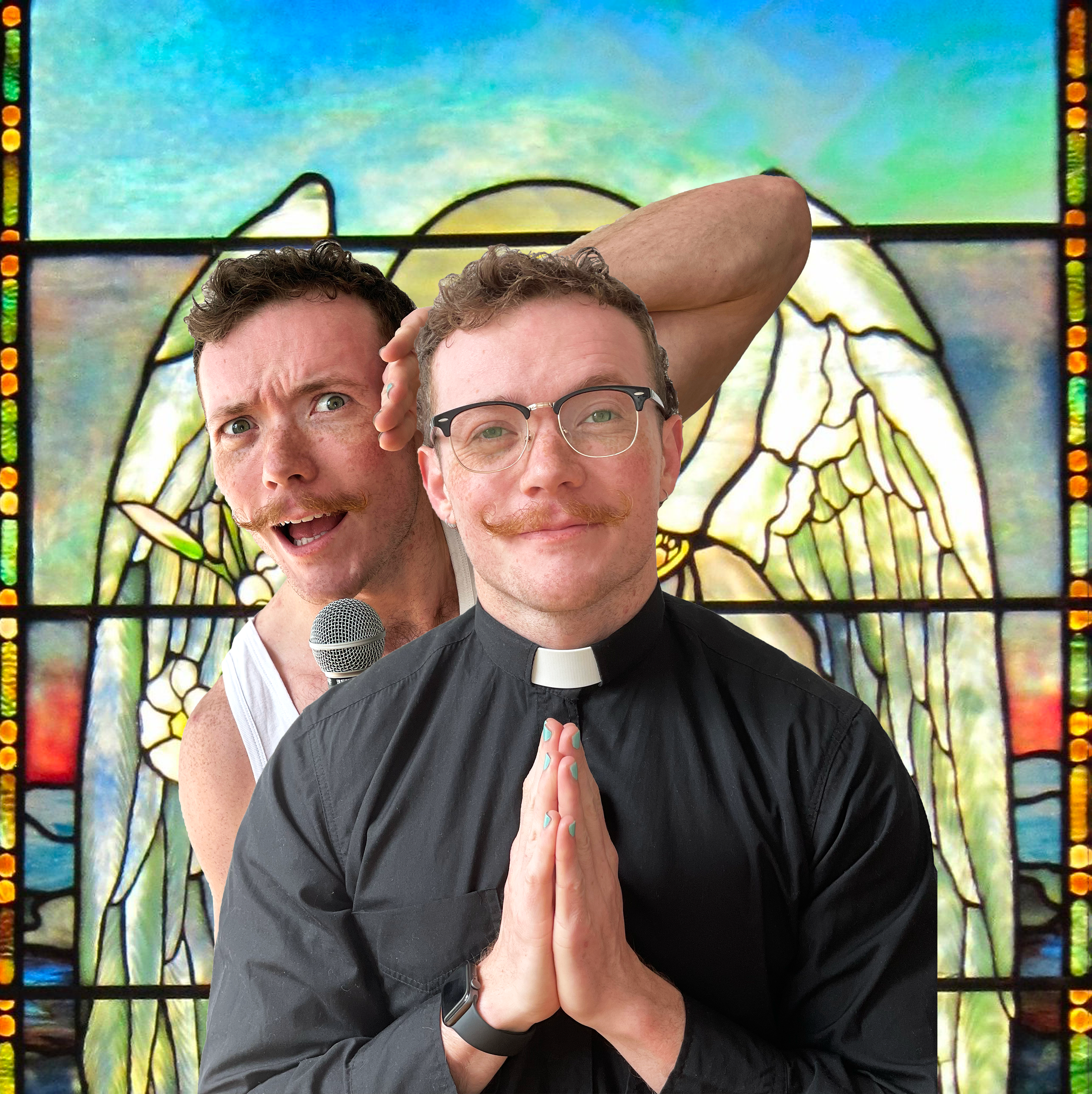Meet the TikTok comedians taking over this year’s Edinburgh Fringe
A new wave of comedy stars has built big followings on TikTok – and now they’re heading to Edinburgh. Isobel Lewis meets the acts making the leap from the For You page to the Fringe


Your support helps us to tell the story
From reproductive rights to climate change to Big Tech, The Independent is on the ground when the story is developing. Whether it's investigating the financials of Elon Musk's pro-Trump PAC or producing our latest documentary, 'The A Word', which shines a light on the American women fighting for reproductive rights, we know how important it is to parse out the facts from the messaging.
At such a critical moment in US history, we need reporters on the ground. Your donation allows us to keep sending journalists to speak to both sides of the story.
The Independent is trusted by Americans across the entire political spectrum. And unlike many other quality news outlets, we choose not to lock Americans out of our reporting and analysis with paywalls. We believe quality journalism should be available to everyone, paid for by those who can afford it.
Your support makes all the difference.When TikTok and YouTube sensation Max Fosh first started performing stand-up comedy last year, one word kept finding its way into his audience feedback. “Actually.” As in: “That was actually really good.” “I said, ‘That’s really fine, but I would rather you take away the word “actually” – don’t sound so surprised!’” Fosh tells me. And – actually – maybe it’s not such a bad thing. “It’s always great when I exceed expectations of what people think it’s going to be.”
Those expectations, implicitly, are that internet comedians are all one-trick ponies hoping to coast through on the support of prebuilt online fanbases. Social media has dramatically changed the comedy scene. An industry once stereotyped as a boys’ club has had its barrier to entry lowered by the internet. Anyone with a phone can now make funny videos and anyone, on platforms such as TikTok, can go viral and find an audience. But with that has come suspicion, prompting a narrative of an “us versus them” divide between the old guard and new whippersnappers.
Now comes the first mainstream litmus test for comedians on TikTok: the Edinburgh Fringe, returning at full scale for the first time since the pandemic. It was during lockdown that comics like Fosh, who first found online success interviewing posh, drunk people outside nightclubs, put all their energy into digital content. But now, they’re among a host of social media creators making their Edinburgh debut at this month’s Fringe festival. For the first time, TikTok is even partnering with the festival, promoting Fringe content on the app and sponsoring two digital screens on the Royal Mile. People who’ve never tried stand-up before are giving it a go, boosted by millions of likes and the support of their followers.

Flick through the Fringe programme and you’ll find mentions of social media success in the blurbs for many of the acts. For those with little (or maybe even no) live comedy experience, social presence will have undeniably played a role in securing their slots, the expectation perhaps being that high viewing figures will turn into high ticket sales.
Yet with TikTok only really taking off in the UK during the pandemic, the jump from posting to performing IRL hasn’t been quantifiable until now. In the run-up, experiences are varied. British-French comic Tatty Macleod, who is doing her work-in-progress show Fugue in the Free Fringe, says that she sells most of her live tickets through Instagram. But Irish comedian Lee Brophy, who best known for his priest character Father Lee, tells me: “I wish it was as easy as putting up a video up on TikTok being like, ‘Hey, come see me at this live show.’” Fosh, similarly, theorises that he can advertise on Instagram all he wants – only 1 per cent of his global followers will be in Edinburgh to buy tickets. And since the Fringe is famously pricey for performers, it’s an expensive risk to take.
US comedian Morgan Jay sells most of the tickets to his sex and dating-inspired comedy through his TikToks, but is “curious” to see how that following transfers for his Fringe show Emotional Damage and his fellow content creators. Follower count, he says, is “all relative”. Whether you can hold an audience’s attention for 55 minutes is the real test. “I wonder how [TikTok stars] will translate to doing a full run or an hour-long show and how it’s going to be received because it’s a very different beast,” he says. He shrugs. “Sometimes it doesn’t translate as well. It is a different skill to entertain people for an hour.”

But without TikTok, an international performer like Jay likely wouldn’t have a pre-built audience in Edinburgh at all – the platform has undeniably brought comics to new audiences. Sarah Cooper managed to turn lip-syncing to Trump speeches into a Netflix special, after all. That worldwide appeal is something Macleod has benefited from too. “You can create content that might feel quite niche when you’re doing it on the scene in London, but actually, if you put it online, you’ve got a global audience,” she says. “You’re not having to water down anything to make it more mainstream because you can find your audience online.”
Before the pandemic, Jay, who did his first open mic 16 years ago, and Macleod, who got into stand-up after working as a theatre director, were already seasoned comics. For them, online success was a nice addition, but for some of the acts heading to the Fringe this year, this is all totally new. Sisters Tabby and Chloe, AKA the Sugarcoated Sisters, found that viral fame came entirely unexpectedly. Two former actors, the siblings had never tried comedy before and had long given up on their creative pursuits. Then, they started recording parody songs about everything from Boris Johnson’s resignation to Love Island. They can now boast 400,000 followers and seven million likes on the platform and are performing their debut musical comedy hour Bittersweet at the festival this summer.
Tabby and Chloe watch TikTok avidly – as well as being creators themselves – and are very aware that the short-form content model doesn’t instantly translate into an hour-long Fringe show. With the app feeding you new content every six seconds, attention spans are measured differently there. “There are so many articles floating about [saying], ‘You have to grab their attention in the first seven seconds or no one will watch your video’ and ‘one minute is the longest that people will kind of watch and then they’ll tune out,” Tabby says. Chloe nods. “When I watch something on YouTube, and they go, ‘Hey guys, it’s me, don’t forget to like and subscribe,’ I’m like, ‘Get on with it,’” she says. “‘You’d never survive on TikTok with that attitude.’”

They’re probably right. While TikTok earlier this year extended its video length time to 10 minutes, the algorithm still favours brevity: the vast majority of clips, especially those featured on its For You page, are short and snappy. But short and long content creation are two totally different skills, just like turning a 30-second comedy skit into an hour of live stand-up. Even someone like Fosh clips his longer YouTube videos down into short, viral soundbites for TikTok.
Another complicating factor is that what TikTok specifically rewards is very different to what works well in live performance. Many of these comics play characters in their videos, but are cautious of including these directly in their stand-up and being known for just one thing. Brophy’s show False Prophet sees him grapple with this very issue. The sex-positive, occasionally sweary, LGBT+ inclusive vicar Father Lee will make an appearance, of course, but his set focuses on being known for an internet character while trying to work as a comedian. “This show’s kind of me pulling the veil off and saying like, ‘Hi, it’s a character,’ because for so long, I just kind of leant into it,” he says. “Even saying in a single video, ‘This isn’t who I am, this is who I am,’ not everyone’s going to see that video.’”

Self-proclaimed “reluctant online hit” Eleanor Morton, meanwhile, is keeping the digital and live worlds separate at the Fringe. In her main show, Eleanor Morton Has Peaked, she’ll be performing in the same style she’s done at the festival for years. But having found success online in the pandemic, she’s also doing a one-off special as her comedy creation, a supremely uninterested Scottish tour guide called Craig. She’s nervous, however, that people will expect her regular comedy shows to integrate “the online stuff” – her hilarious characters such as an edgy court jester and Pathos, the fifth Musketeer. “The skills you need for one are very different from the skills you need for another,” Morton says.
Somewhere between the two is Macleod, whose bread and butter on TikTok are videos about the differences between French and English people. Prior to her online success, she’d been working on a show exploring her dual identities in a post-Brexit world and she’s aware it’s what her 100,000 followers now expect of her too. “If I advertise the show to my followers and then my whole live show has got nothing to do with being French and English, it’s not really what people are following before,” she says.
It’s quite scary to suddenly feel like people are watching you
Some of these performers love a live audience and struggle with online attention, while others feel the exact opposite. For Morton, internet fame was more exposing than performing to an audience ever could be. “As an onstage comedian, you’re quite used to doing the show and then you kind of just disappear into the darkness and that’s it. But when you’re online, it’s a very constant presence… It’s quite scary to suddenly feel like people are watching you, which I know sounds weird coming from someone who does comedy, but the internet feels so big, you know?”
Conversely, Sugarcoated Sister’s Tabby points out: “Once we post a video, it’s done, and it’s out there and it can kind of grow or not grow – there’s not that much at stake. Whereas having the audience actually in the room with us, it kind of keeps the performance alive because they become part of the interaction.”
But the ultimate question dividing the comedy stars of the internet is whether they refer to themselves as such at the Fringe. Listing viewing stats feels a little gauche, yet with more than 3,000 other acts to compete with, you have to find something to make you stand out. On the Sugarcoated Sisters’ flyers, you’ll see multiple references to TikTok (they also feature in the app’s ads in the programme). After all, Chloe says, “our show is geared towards people who are TikTok users anyway”. Fosh, meanwhile, says he doesn’t want his internet presence to be the reason people buy tickets. “I want the selling point to be that it’s a good show, that it’s an enjoyable show,” he says. “I don’t want to feel like, ‘Oh, it’s the guy from the internet.’”

Loud-mouthed content creators such as Jake and Logan Paul haven’t exactly helped YouTube’s reputation. And ever since a plucky teenage YouTube sensation called Bo Burnham became the youngest ever nominee for the Edinburgh Comedy Award in 2010, the comedy industry has treated internet comedians with some trepidation. Burnham’s show may have been an instant hit, but there was still a sense that the then-burgeoning internet was a shortcut. The idea of working your way up from the bottom – or as Fosh puts it, “slogging and doing the working men’s clubs in Knutsford at 2am” – is still fetishised and seen as the “real” way in.
But Brophy, who had performed improv and stand-up long before getting big on TikTok, points out that in the pandemic, social media was “all we had”. “Some people might feel as though one is holier than the other as far as pure comedy,” he suggests. But Burnham, an early pioneer of making the leap from being funny online to being a comic superstar IRL, illustrates the only thing that really matters in the end: “If you’re funny, you’re funny. It’s fairly simple.”



Join our commenting forum
Join thought-provoking conversations, follow other Independent readers and see their replies
Comments